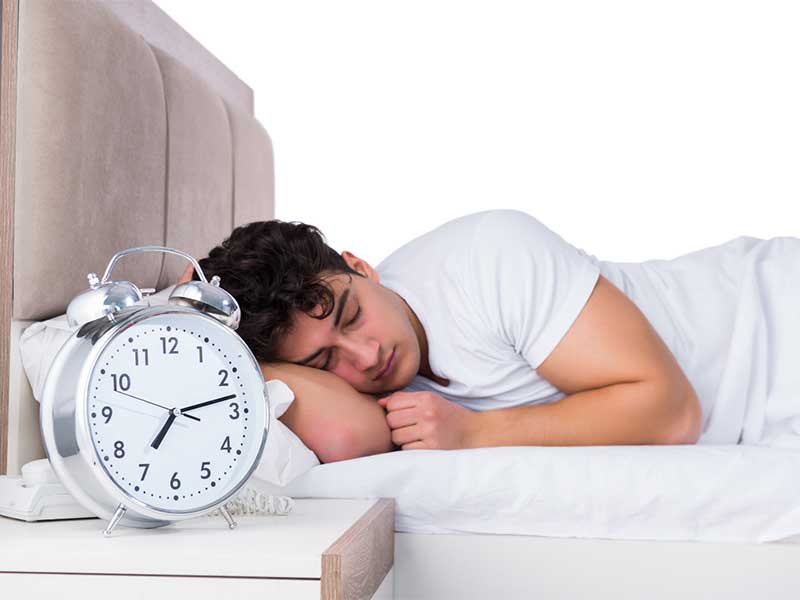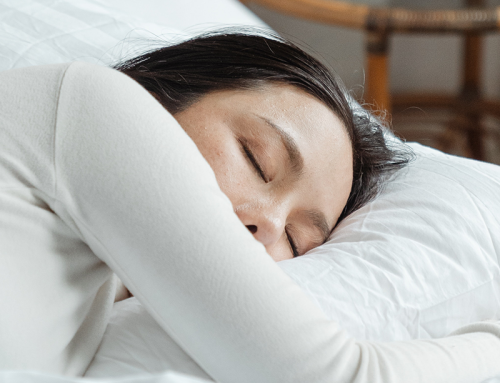Are you struggling to get to sleep, or stay asleep? Do you feel refreshed the next morning, or are you yawning all day? If you’re feeling irritable and finding it hard to concentrate due to tiredness, you may have insomnia.
There are many causes of insomnia, including, but not limited to:-
- Room temperature being too hot or too cold
- Uncomfortable bed
- Working shift hours
- Jet lag
- Anxiety, depression, or stress
- Chronic pain
- Caffeine, alcohol, or nicotine
- Health conditions (such as schizophrenia, bipolar disorder, ADHD, restless leg syndrome, overactive thyroid, pregnancy, or menopause)
Do I get enough sleep?
Adults should really be aiming to get between 7 and 9 hours’ sleep each night, with children needing 9-13 hours and babies even more, 12-17 hours. [1]
If you’re reading this and thinking ‘I need to sleep more’ – maybe it’s time to review your sleep hygiene.
What is Sleep Hygiene?
Originally developed as a treatment option for mild to moderate insomnia, sleep hygiene is a set of behavioural and environmental habits that nurture consistent and healthy sleep. [2]
Good habits to develop
- Set your ‘body clock’ – wake up and go to sleep at the same time each day
- Do something you find relaxing before bed – read, have a bath, listen to calming music
- Make your bedroom clean, tidy, dark, and quiet – invest in black-out curtains and blinds, and keep clutter out of the bedroom
- Exercise in the daytime – swimming is a great low-impact exercise that doesn’t leave you aching and sore, and the risk of injury is low
- Make your bed comfortable and have the room at the right temperature – if you get too warm, turn on a fan or open the window. Invest in a comfy mattress, duvet, and sheets that you want to sink into at night.
- Consider listening to white noise, an audio book or spa music if you need background noise – White noise can help to limit environmental sounds and limit disturbances through the night. You can find playlists online that are designed to encourage deep sleep.
Bad habits to avoid
- Eating too late or eating too much – keep the last meal of your day early and light… but don’t go to bed hungry!
- Exercising within 4 hours before bed – you won’t give your body a chance to recover post-workout
- Smoking, drinking alcohol, or caffeine in the evening can keep you lying awake
- Napping during the day – if you’re struggling to sleep at night, avoid lying-in or napping in the daytime
- Watching TV or scrolling on your smartphone – although these activities may feel relaxing, the bright lights are actually stimulating and may contribute to insomnia
What if improving ‘Sleep Hygiene’ doesn’t work?
If implementing new habits doesn’t help to relieve your symptoms of insomnia, you can speak to your pharmacist, who may advise some over-the-counter medications for short-term relief.
Should I see my GP?
If the problem persists after changing your sleeping habits and speaking to a pharmacist, or if insomnia symptoms are affecting your daily life, it’s time to book an appointment with your GP.
How can my doctor help?
Although GPs rarely prescribe sleeping pills any more (as they come with serious side effects and there is a high risk of dependency), there are other treatment pathways. These include Cognitive Behavioural Therapy (CBT), which works on changing thought processes around sleep, and referral to a sleep clinic if symptoms of other sleep disorders are also present.







Leave A Comment